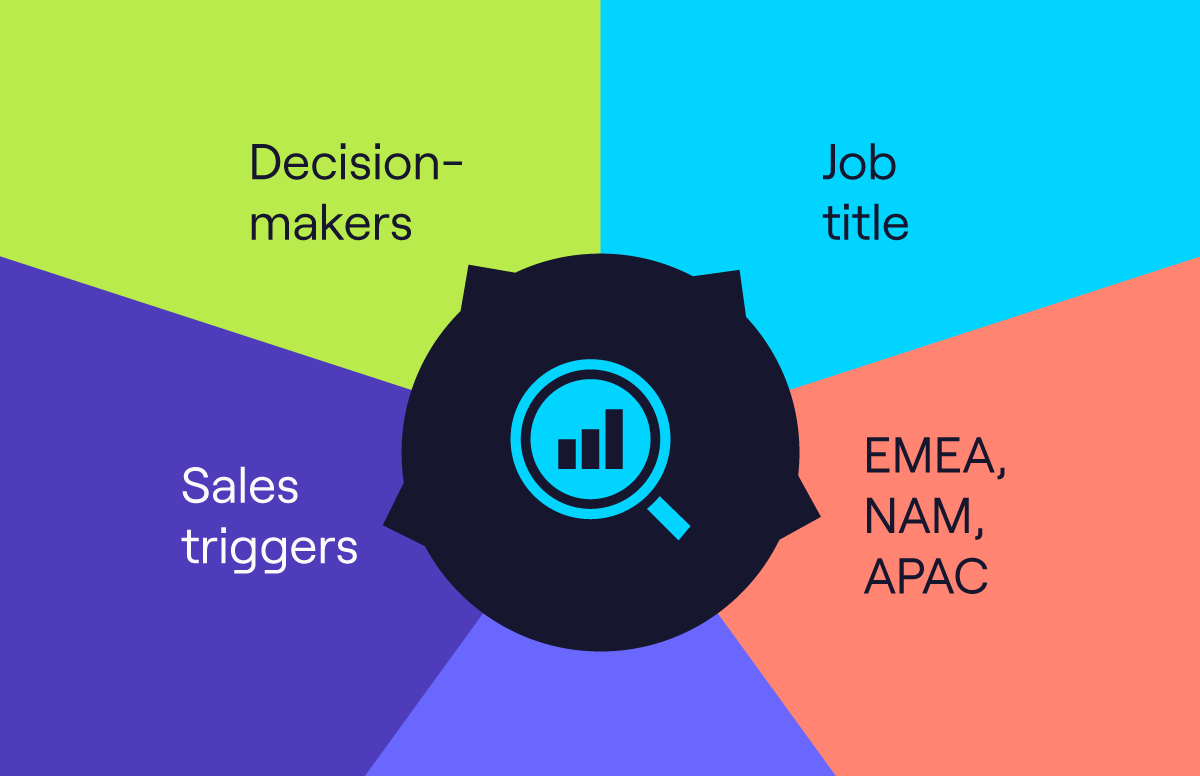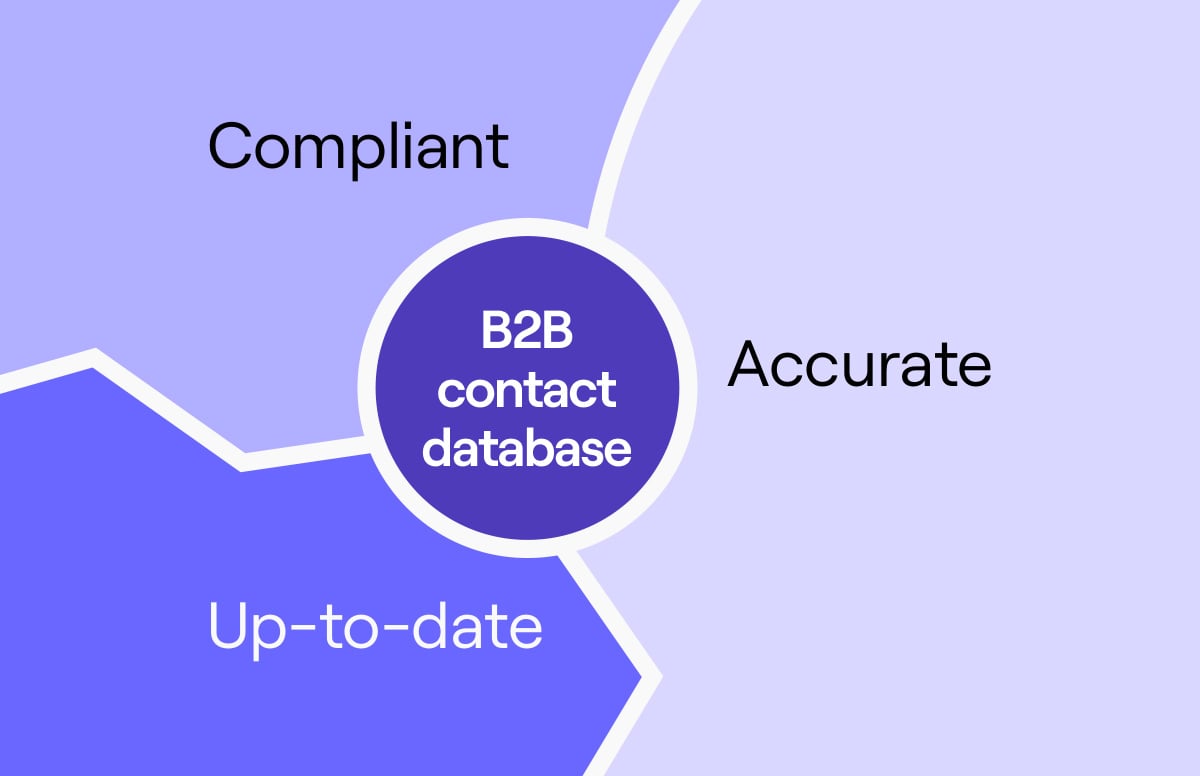11 Reasons Why CRM is the Key to Unlocking Business Growth
What's on this page:
The value of your Customer Relationship Management (CRM) system is indisputable for companies with revenue teams. CRMs now represent 31.8% of the enterprise application software market, with predictions that end-user spending will grow at an annual compound growth rate of 15.1% through to 2027 (Gartner).
It's clear that CRMs are seen as tools crucial for growth with investment percentages like that.
Workbooks offers an industry-leading cloud-based CRM. Their combination of groundbreaking, user-friendly technology, excellent customer support, and highly competitive pricing makes them a great choice for small—to medium-sized businesses.
We spoke to Workbooks CEO and serial entrepreneur, John Cheney. John has over 30 years of experience in the IT industry and can be considered the expert in CRM growth and technology.
Scroll 👇 to read John’s 11 reasons why CRM unlocks business growth.
1. It leads to data-driven decisions
There are several positive outcomes from investing in CRM software: revenue growth by finding new customers and selling more to existing customers, improving the customer experience and reducing operational costs – a CRM can help with all these.
A CRM system streamlines business. It leads to better insight and decision-making. Also, with better B2B leads, you’ll build a stronger pipeline and unlock greater sales and marketing growth.
2. It benefits the whole business
Sales and marketing benefit in the most obvious way, but also customer service and finance.
A CRM is perfect for tracking customer inquiries, and you can also integrate customer payments and credit control.
In short, an up-to-date CRM will positively impact the whole business. Solutions like Data as a Service (DaaS) can help you unlock its full potential, without taking on the burden of new infrastructure yourself.
👉 Check out Cognism’s DaaS solution.
3. It helps all sales roles
First, split your B2B sales team into buckets.
There are the sales leaders – what do they want?
They want a clear view of their pipeline and to measure the progress and productivity of their SDRs. They also want to measure the effectiveness of marketing – what’s the quantity and quality of the inbound leads?
Then there are the SDRs – what do they want?
For them, it’s all about productivity and being more efficient at their job. They want to be able to manage their workload and prioritise their tasks.
A good CRM helps both of these sales roles at once.
4. It helps to find and convert customers
The most important thing is for the whole business to agree on what your ideal customer looks like. Then, once you have that defined, you can look at how a CRM can help you reach them.
At the top of the sales funnel, you want to attract those ideal buyers. CRM software can help here.
For example, if your CRM tracks website traffic, then you’ll know which pages are popular and what content people are engaging with. You can use these insights to improve your company’s marketing, with better targeting of leads and more relevant content.
Further down the funnel, use your CRM to track the conversion rate. Which types of leads are actually translating into business?
Again, use those insights to influence which leads you’re targeting and engaging with.
5. It reduces the cost of sales
One way to reduce the cost of sales is to make your marketing more efficient! It’s often overlooked by sales leaders, but it can be a very quick win.
Use your CRM to measure the success of your B2B marketing team. Which area’s performing best – is it PPC, email or SEO? When something’s working well, focus resources on that area.
For the sales team itself, productivity is a big factor. The less time your SDRs spend on sales admin, the more calls they’ll make and the more deals they’ll close.
6. It increases sales productivity
CRM boosts activity in the following three ways:
- Salespeople are able to find the information they need more quickly.
- By being more aligned with sales, it's easier for marketing to provide warm leads directly through the CRM.
- Streamlined processes. For example, electronic signing in the CRM, automated order processing...anything that makes your sales team’s lives easier!
The main point here is that a CRM system puts everything in the right place. Any information that you want to share or see can be filed or found, exactly where you’d expect it. This makes research, planning, collaboration and sales strategy that much simpler.
7. It increases upsells and improves customer retention
The fastest, easiest business growth driver is selling more to your existing customers.
Study the transactional data in your CRM to see what they’ve purchased before, and determine what they’re likely to buy in future.
Feed that information to your marketing team. They can create content specifically to engage that audience and prove the value of the upsell opportunity.
If you want to improve retention, then you have to look at the customer experience. Analyse the B2B data for your customers in the CRM. How many tickets have your customers raised? If it’s too many, that’s a warning sign.
At Workbooks, we use a traffic light system. If a customer raises a certain number of tickets, they go from green to amber to red. A red rating means it’s time to put in place an action plan for that customer. Use the CRM to identify ‘at-risk’ customers early and you can quickly turn things around.
Also, use regular customer surveys and log the results in your CRM. The best way to find out if your customers are happy is to ask them! After you get the results back, check your CRM data for trends.
A good CRM for small businesses will help you spot areas for improvement before they turn into serious problems.
8. It aligns sales and marketing
An integrated CRM and marketing automation platform is essential. Both teams should be using the same tech!
It’s no good having your sales team using a CRM and your marketing team using a different platform – it’s best when everyone works together! Growth happens when sales and marketing are on the same page.
If your ICP changes based on sales information from your CRM, it’s vital that marketing is able to quickly recognise this and review its content plan. This is an example of marketing and sales using the CRM to create a more efficient business workflow.
Instead of talking about the sales and marketing funnel – talk about the revenue funnel! It should be all one funnel, measured by the same metrics and underpinned by the same tech.
9. It aligns with your business goals
To align a CRM with your goals, first ask yourself 3 questions – “why, what, how”:

Once you’ve got the answers, go ahead and invest!
Don’t get hung up on features or functionality. Instead, find a CRM that provides the clearest route to achieving your goals.
10. It doesn’t have to be super-expensive
Workbooks’ customer base is mid-market, so we’re a very price-sensitive option – 50% of the price of Salesforce!
We also have a unique onboarding process called “Shared Success” – we run workshops with our clients to uncover the “why, what and how” behind their CRM investment. If we think that Workbooks can deliver for them, we implement our tech for free!
Workbooks isn’t just a software company; we’re a fully-fledged CRM consultancy. Our goal is to build long-term relationships with our customers. I think that’s what separates us from other CRM software providers.
11. It’s a secure place for your customer data
You can’t just keep customer data just anywhere. A CRM makes it easy to share data across teams and ensures it isn’t shared with anyone else. A good CRM will have powerful security features such as multifactor authentication (MFA) and a strict internal management policy over who has access.
Enrichment tools like Cognism also come in handy to keep your CRM data up-to-date and compliant. We notify business contacts of their inclusion in our database within GDPR timeframes and scrub our phone numbers against 13 major Do Not Call and TPS lists.
Learn more about Cognism’s DaaS solution
Outdated and disconnected data costs your revenue team millions.
👉 Keep your CRM always up-to-date with Cognism’s DaaS solution.
- Fetch data instantly via API or work with us to schedule batch delivery.
- GDPR & CCPA compliant data sourcing.
- Expert support for custom integrations and strategy.


%20(1).png)
